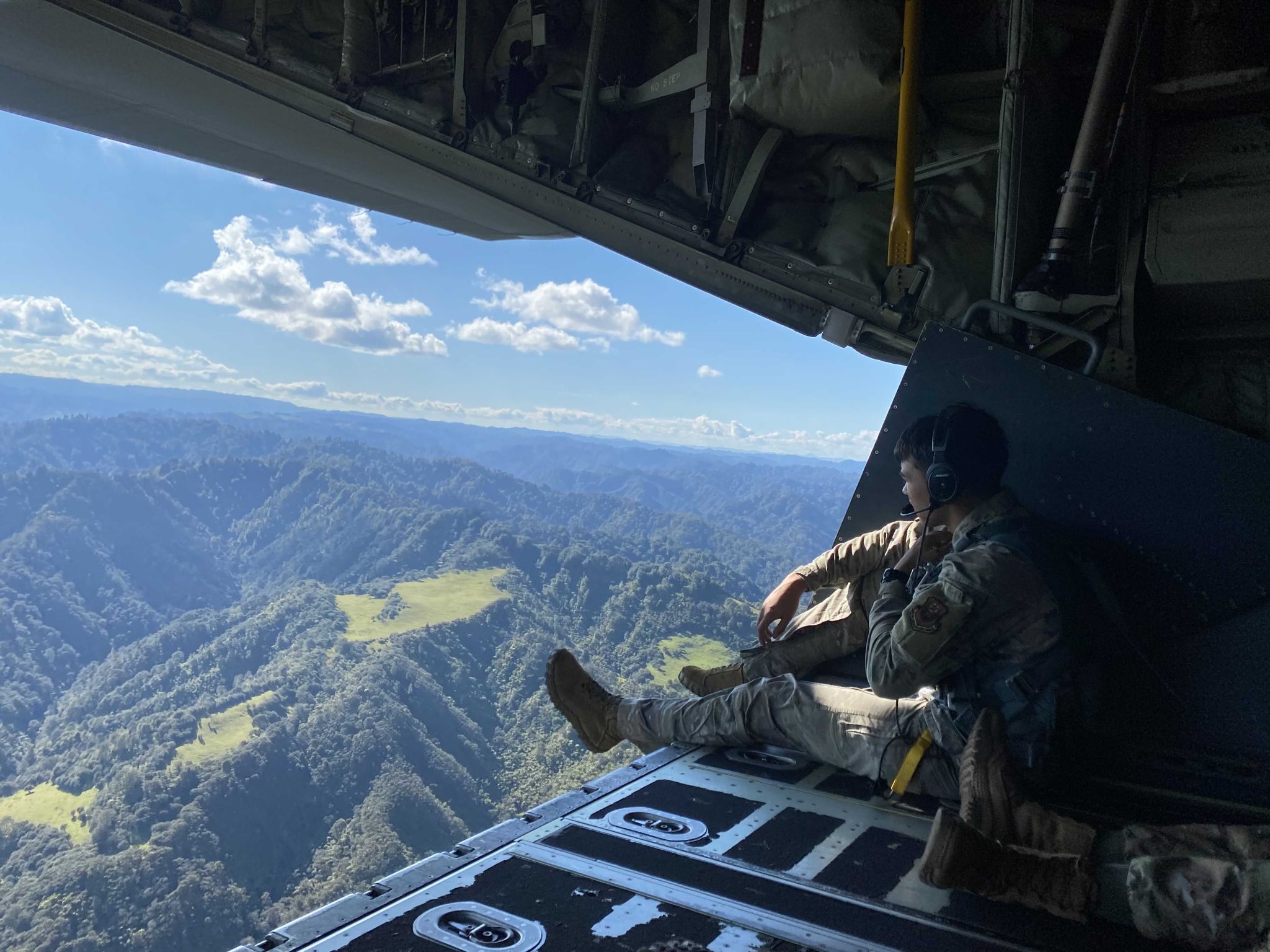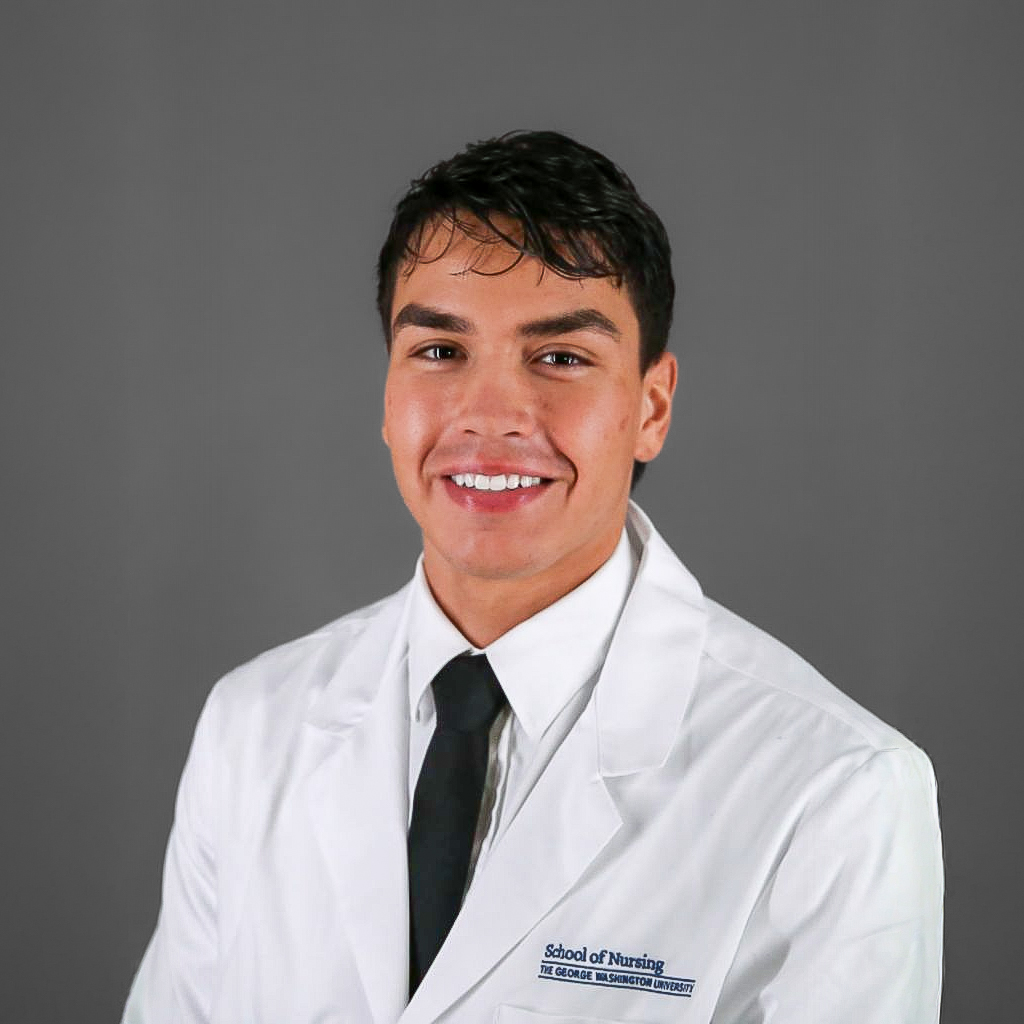For Kaden Jeffery, Senior Airman in the United States Air Force, life used to revolve around a $114 million aircraft, coordinating aerial refueling, airdrops, and clandestine operations across the Indo-Pacific. Now, as a student in the Veterans Bachelor of Science in Nursing (VBSN) program at the George Washington University School of Nursing, his focus has shifted—from safeguarding the airworthiness of an MC-130J to safeguarding the health of patients.
Jeffery, who is on track to graduate in Spring 2026, represents the best of the VBSN program: a driven individual bringing high-stakes experience, meticulous attention to detail, and a commitment to mission-critical work straight into the healthcare environment. His journey is a compelling testament to how military service cultivates the essential qualities needed to excel in your nursing practice.
The 180-Degree Turn: Why Nursing and Why GW
Jeffery describes his pivot to nursing as a "complete 180-degree turn" from his role as a Special Missions Aviator. The idea took hold during various missions when he witnessed healthcare professionals in action. This sparked a realization that the adrenaline, discipline, and purpose he craved in his military role could be found in medicine. He also credits his brother, currently in medical school, whose guidance helped Jeffery see how his unique military skillset was perfectly suited for healthcare.
Choosing GW Nursing was less of a jump and more of a guided landing, thanks to the School's dedicated outreach. When researching how to apply military credits to a nursing degree, Jeffery recalls being "shut down immediately" by most schools. GW, however, was the exception.
“The student affairs team genuinely seemed to care about helping me succeed,” he shares. “They provided step-by-step guidance on the admissions process and made me feel welcomed rather than like just another applicant.”
The VBSN program proved to be the ideal launchpad, allowing him to join just one month after leaving the military. Being surrounded by fellow veterans who understood his background and the challenges of transition made the demanding academic shift much smoother.
Meticulous Care: Transferring Skills from the Cockpit to the Bedside
The skills Jeffery honed while serving on the MC-130J are extremely relevant in his new career. In fact, he sees remarkable parallels between his former duties and patient care.
“My primary responsibility was treating that expensive aircraft like a patient,” he explains. Before every flight, he performed meticulous pre-flight inspections to ensure the aircraft was in perfect condition for safe operations. That same systematic approach to assessment and attention to detail is the bedrock of excellent nursing care.
The military entrusted him, even as a 20-year-old, with an aircraft worth over $100 million. “That taught me the weight of responsibility when lives depend on your vigilance,” he notes. In the high-stakes environment of patient care, this sense of accountability is non-negotiable.
Furthermore, his experience working with military personnel from six different Indo-Pacific countries instilled a great appreciation for adaptable communication. In nursing, the ability to tailor communication and connect with patients from highly diverse cultural and socioeconomic backgrounds is invaluable. "Effective care, whether for an aircraft or a person, requires precision, accountability, and the ability to remain calm under pressure," Jeffery emphasizes.

The Call to Criticality: ICU Aspirations
Jeffery is not seeking a quiet corner of the hospital. When he graduates, he is determined to pursue ICU nursing.
“The ICU sees the most critical, complex cases: patients who are truly fighting for their lives,” he says. “That’s where I feel I can make the most significant difference.”
His preference for the ICU stems directly from his military experience. He thrived in high-stakes environments where precision and quick decision-making were essential, and the ICU offers that same level of intensity and purpose.
Jeffery is driven by a non-negotiable need to help people and an active fear of stagnation. Nursing, with its endless possibilities for specialization, growth, and continuous learning, satisfies both of these core needs. “If I feel ‘stuck’ in one area, I can transition to another specialty. There’s always more to learn, always new challenges to tackle,” he explains. This constant potential for evolution keeps him deeply engaged and motivated.
Revolutionizing Healthcare Through Aviation Safety
While his immediate focus is on passing the NCLEX, Jeffery is already looking ahead to how his background can influence the healthcare culture. He points out that the medical field has already successfully adopted safety protocols from aviation, such as checklists and standardized procedures. His goal is to push the cultural shift even further, specifically focusing on communication and psychological safety.
In special operations, they lived by a crucial tenet: once you step onto the aircraft, rank disappears. “Everyone becomes equal so that every voice is heard and no critical information goes unspoken,” he states.
Jeffery recognizes that some healthcare environments still struggle with a rigid hierarchy where nurses may hesitate to speak up to physicians or question decisions. This hesitancy, he believes, is a critical safety risk. He wants to help foster a culture where every team member feels empowered to advocate for patient safety without fear of reprisal.
“That flat hierarchy during critical moments saved lives in aviation, and I believe it can do the same in healthcare,” Jeffery concludes.
As Kaden Jeffery progresses toward his Spring 2026 graduation, his commitment to precision, team accountability, and empowering every voice promises to make him a truly transformative force in critical care nursing and beyond.


